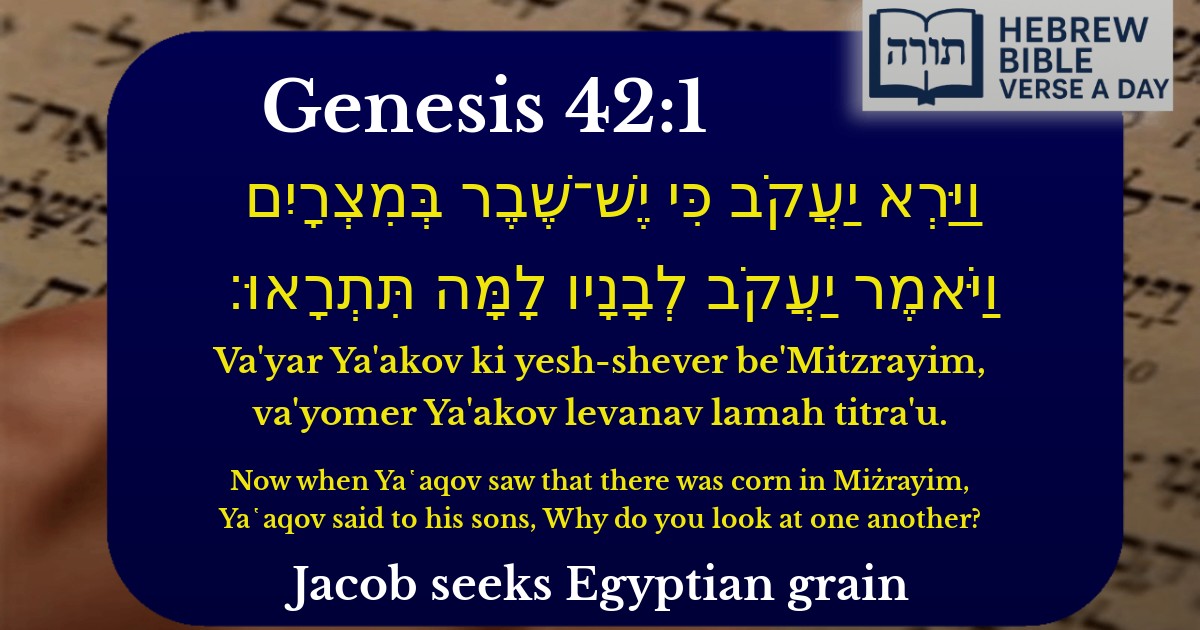Join Our Newsletter To Be Informed When New Videos Are Posted
Join the thousands of fellow Studends who rely on our videos to learn how to read the bible in Hebrew for free!
Hebrew Text
וַיַּרְא יַעֲקֹב כִּי יֶשׁ־שֶׁבֶר בְּמִצְרָיִם וַיֹּאמֶר יַעֲקֹב לְבָנָיו לָמָּה תִּתְרָאוּ׃
English Translation
Now when Ya῾aqov saw that there was corn in Miżrayim, Ya῾aqov said to his sons, Why do you look at one another?
Transliteration
Va'yar Ya'akov ki yesh-shever be'Mitzrayim, va'yomer Ya'akov levanav lamah titra'u.
Hebrew Leining Text
וַיַּ֣רְא יַעֲקֹ֔ב כִּ֥י יֶשׁ־שֶׁ֖בֶר בְּמִצְרָ֑יִם וַיֹּ֤אמֶר יַעֲקֹב֙ לְבָנָ֔יו לָ֖מָּה תִּתְרָאֽוּ׃
וַיַּ֣רְא יַעֲקֹ֔ב כִּ֥י יֶשׁ־שֶׁ֖בֶר בְּמִצְרָ֑יִם וַיֹּ֤אמֶר יַעֲקֹב֙ לְבָנָ֔יו לָ֖מָּה תִּתְרָאֽוּ׃
🎵 Listen to leining
Parasha Commentary
📚 Talmud Citations
This verse is quoted in the Talmud.
📖 Ta'anit 10b
The verse is referenced in a discussion about the importance of seeking sustenance and not hesitating in times of need, illustrating Jacob's proactive response to the famine.


Understanding the Verse's Context
The verse (Bereshit 42:1) describes Yaakov's reaction upon hearing that there was grain (שֶׁבֶר) available in Mitzrayim (Egypt) during a time of famine. The phrase "וַיַּרְא יַעֲקֹב כִּי יֶשׁ־שֶׁבֶר בְּמִצְרָיִם" ("Yaakov saw that there was grain in Egypt") raises questions about how Yaakov "saw" this, given that he was in Canaan. Rashi explains that Yaakov did not physically see the grain but perceived through divine inspiration (רוח הקודש) that sustenance could be found in Egypt.
Yaakov's Question: "לָמָּה תִּתְרָאוּ"
Yaakov's statement to his sons, "Why do you look at one another?" (לָמָּה תִּתְרָאוּ), is interpreted in multiple ways by our commentators:
The Meaning of "שֶׁבֶר"
The word שֶׁבֶר (grain) is also significant:
Spiritual Lessons
From Yaakov's response, we learn: